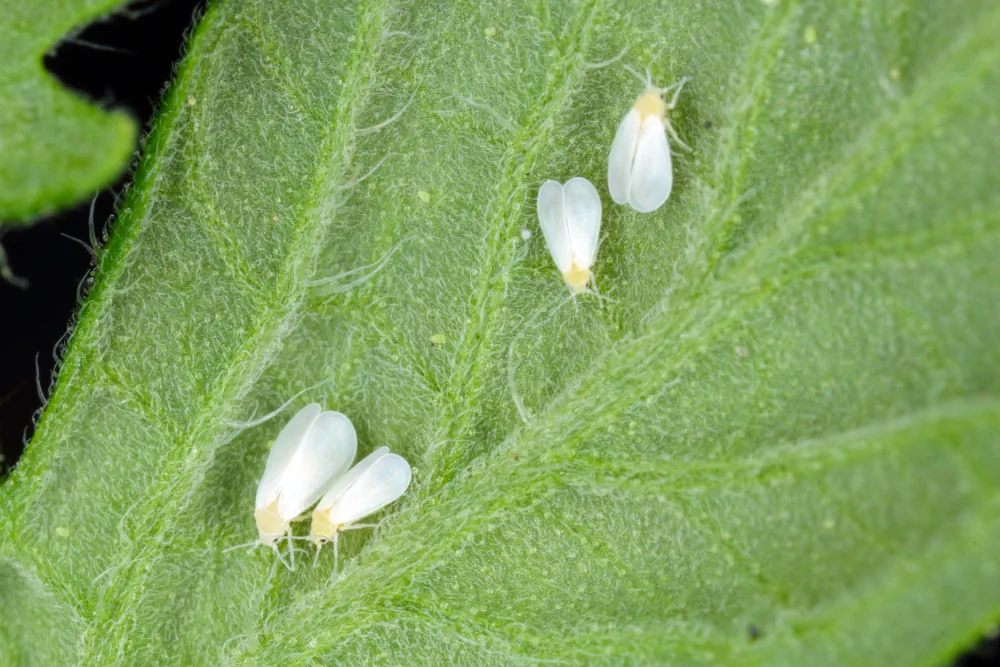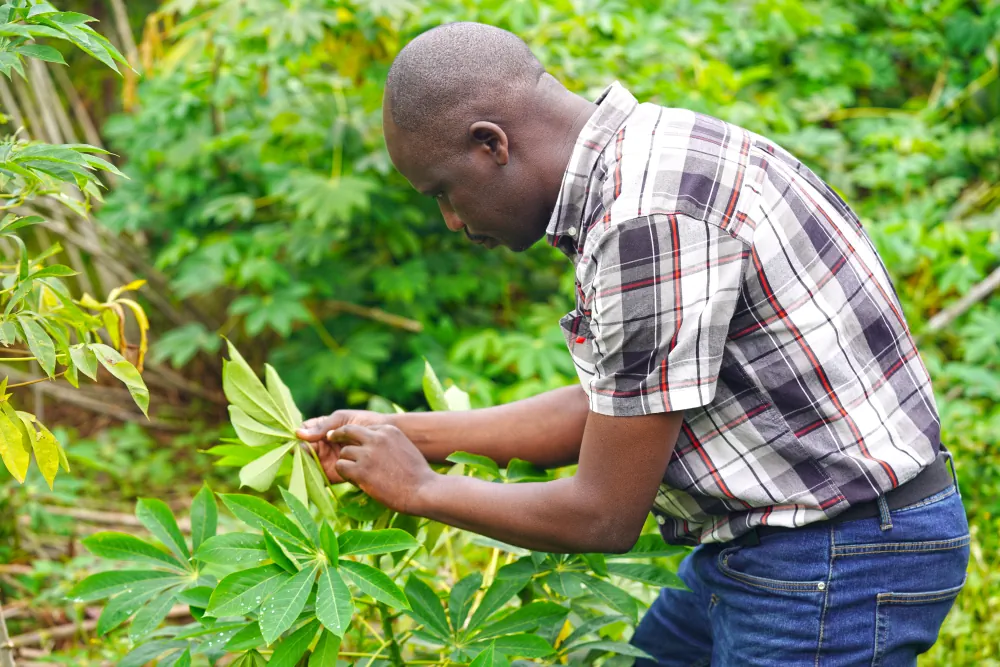
From humble beginnings in northern Uganda to completing a PhD at NRI in May 2025, Dr Phillip Abidrabo’s journey has been shaped by curiosity, persistence and a passion for plant biotechnology.
Phillip’s interest in research was first sparked during his A’ levels when a group of university students visited his school for an outreach session. Hearing about the Bachelor of Science in Technology (Biology) at Kyambogo University inspired him to pursue this research-focused programme. It introduced him to modern biology techniques and included internships that gave him a taste of laboratory and field-based science.
Discovering cassava virus research
Initially drawn to HIV research, Phillip completed his first internship at Arua Regional Referral Hospital but quickly realised the hospital environment wasn’t for him. A new path opened when he encountered molecular biology at the Institute of Environment and Natural Resources at Makerere University. He later visited the National Agricultural Research Laboratory and the National Crops Resources Research Institute (NaCRRI), where he saw plant biotechnology research and its application firsthand.
During the visit to NaCRRI, then senior research officer, Yona Baguma, introduced Phillip and his classmates to crop biotechnology and to his own PhD research on the proteomics of starch and starch biosynthesis in cassava. Put differently, his research explored the role of different proteins involved in the complex process of converting glucose into starch. Inspired by this, Phillip went on to do his second-year internship with Yona at NaCRRI, where he worked on plant virus molecular diagnostics. He later returned to the institute during his third year for a special project, screening cassava varieties for resistance to cassava mosaic viruses under Yona’s supervision.
Building expertise in vector-borne plant diseases

After his undergraduate studies, Phillip joined the International Institute of Tropical Agriculture (IITA) before returning to NaCRRI for his MSc research on the distribution and genetic diversity of cassava brown streak viruses (CBSVs) in Uganda. He was later recruited as a Technical Assistant in Plant Pathology. Through this role, he contributed to mapping the spread of cassava diseases and whitefly distribution and played a key role in the establishment of the Cassava Regional Centre of Excellence in Uganda.
In 2020, Phillip was awarded a research fellowship to study the role of whiteflies in the epidemiology of cassava viral diseases at NRI. COVID-19 travel restrictions delayed his arrival in the UK by seven months, but once on campus, he immersed himself in his PhD research.
NRI experience: skills, support, community
At NRI, working with three African whitefly populations, Phillip investigated their role in CBSV transmission, identifying two competent vector species and uncovering candidate genes potentially linked to transmission.
‘My work has important implications for managing cassava brown streak disease,’ Phillip explained. ‘By understanding virus transmission at the vector level, we can explore ways to disrupt it before it spreads.’
These findings provide critical insights for management and control of CBSVs which threaten food security for millions in sub-Saharan Africa.
Phillip valued not only NRI’s well-equipped laboratories but also the supportive, collaborative community. Faculty, supervisors, staff and fellow students were generous with their expertise, creating an environment where learning flowed both ways.
His PhD experience sharpened his skills as an independent researcher and expanded his abilities in project management and interdisciplinary thinking. Even before completing his studies, Phillip received job offers to support viral disease research in Africa.
Continuing the mission

Phillip is now a research scientist on a whitefly research project in Uganda, a role that draws directly on his expertise in plant virology and insect-borne disease transmission (vector entomology). Looking ahead, he hopes to continue investigating vector transmission in major crops – research that could have far-reaching impacts on food security.
Inspiration and advice for the next generation
Asked what drives his passion for plant virology and vector entomology, Phillip pointed to the direct impact his work can have on food security and livelihoods in Africa. ‘Cassava is a staple for millions and protecting it from devastating diseases means protecting people’s ability to feed their families and earn a living,’ he explained. This sense of purpose keeps him motivated through the challenges of research.
For current and potential NRI students, Phillip’s advice is simple: stay curious, embrace collaboration, and take full advantage of the resources and networks available. ‘NRI offers a supportive, diverse community and access to cutting-edge facilities. Use them to learn, connect, and push your ideas further than you thought possible.’

